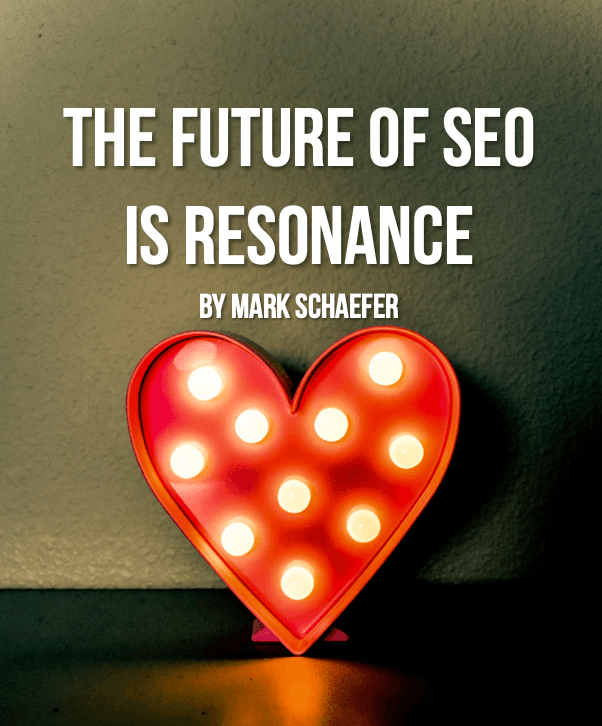
One of the problems in the digital marketing world today is that leaders are using an outdated playbook — especially when it comes to Search Engine Optimization. I think the future of SEO is taking some pretty wild and unexpected turns right now so let’s explore that today.
Content as SEO fuel
The major innovation with SEO over the past few years is that it has largely become a content strategy. Beginning with the “inbound marketing” concept introduced by Hubspot in 2005 and growing into very sophisticated AI-driven techniques today, creating content that can auto-magically bring qualified leads to your site has been a reliable strategy.
But there are a few trends that are changing that and content certainly does not work for SEO like it used to. The future of SEO is moving in a dramatic new direction.
The changing search landscape
Let’s look at the future of SEO and content as it is unveiling itself through three significant trends.
First — voice search. When you search Alexa or Google home by verbalizing a question, you don’t get a list of content suggestions like blog posts or videos. You get an answer. So content has a much-diminished impact in the world of voice search.
It’s impossible to tell exactly how much of the total search pie is going to voice queries, but let’s be ultra-conservative and say 20 percent.
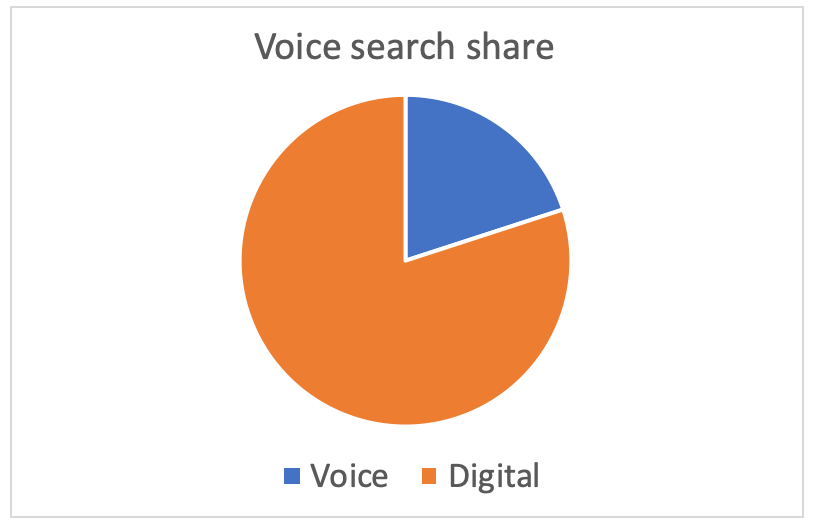
When you ask Alexa or Siri to do something for you, you normally don’t get a list of blog posts or podcast episodes in the results. So the implication is that your content is potentially impacting much less of the search market than it did in the pre-voice days five years ago. But wait, it gets worse.
Trend number two — In 2020, something very significant happened in the search world. For the first time, more than half (51 percent) of the search inquiries on Google were kept by Google.
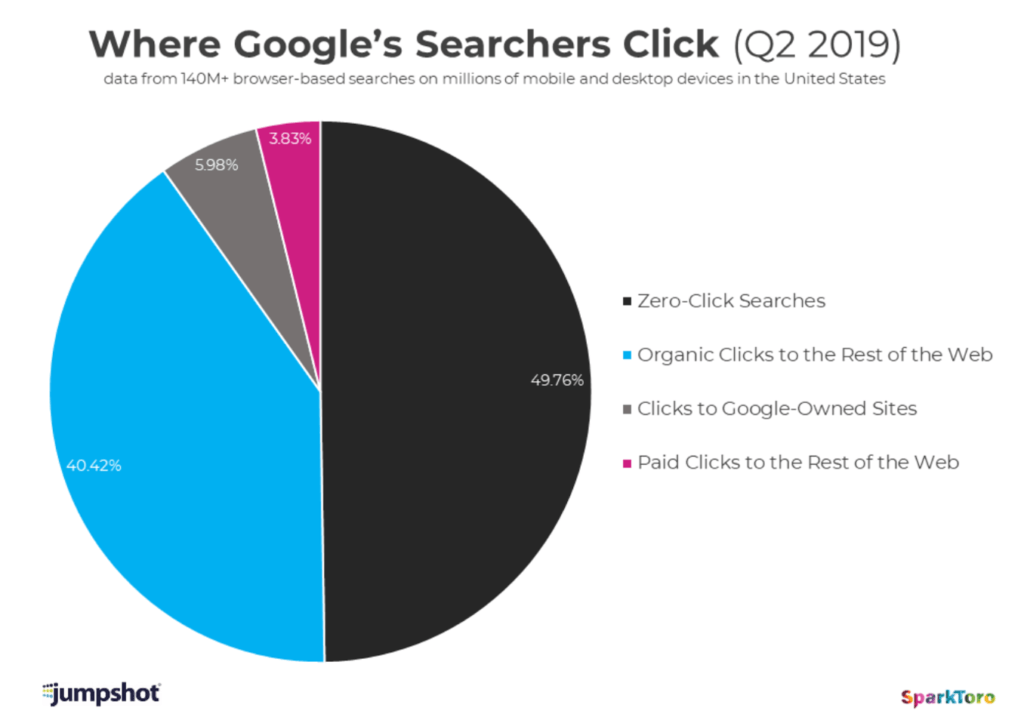
This means, Google kept the SEO “answers” away from businesses and content creators and directed them to their own knowledge panels, internal properties, and paid partnerships.
An investigative report on The Markup shows how this impacts sites trying to compete for any search ranking:
When we examined the top 15 percent of the page, the equivalent of the first screen on an iPhone X, Google-owend search jumped to 63 percent. For one in five searches in our sample, links to external websites did not appear on the first screen at all.
A trending search in our data for “myocardial infarction” shows how Google has piled up its products at the top. It returned:
- Google’s dictionary definition.
- A “people also ask” box that expanded to answer related questions without leaving the search results page.
- A “knowledge panel,” which is an abridged encyclopedia entry with various links.
- And a “related conditions” carousel leading to various new Google searches for other diseases.
All of these appeared before search results by WebMD, Harvard University, and Medscape. In fact, a user would have to scroll nearly halfway down the page—about 42 percent—before reaching the first “organic” result in that search.
Will this trend continue to grow in the Google direction? The government will have some say over this. Google’s increasing dominance in this space is a subject of a Department of Justice probe. The company owns the dominant tool at every link in the complex chain between online publishers and advertisers, giving it unique power over the monetization of digital content.
So now we have a truer picture of the emerging search world. In the past five years, the majority of organic search traffic that was available to be attracted by your content has been in steady decline.
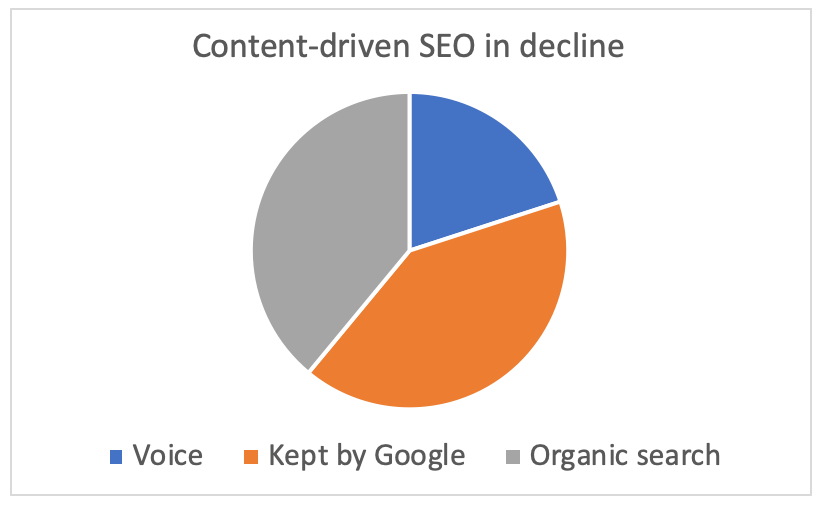
The main idea here is, the available search inquiries that can be served by your SEO-oriented content has been evaporating over the past five years.
And when we look at the future of SEO … it gets even worse.
Trend three — While the piece of the pie available to organic search inquiries has been in rapid decline, the amount of content competing for that shrinking pie has literally exploded.
When you have more and more content competing for the same search traffic, eventually content marketing is not a sustainable strategy for some businesses. This is an idea I proposed some years ago called Content Shock.
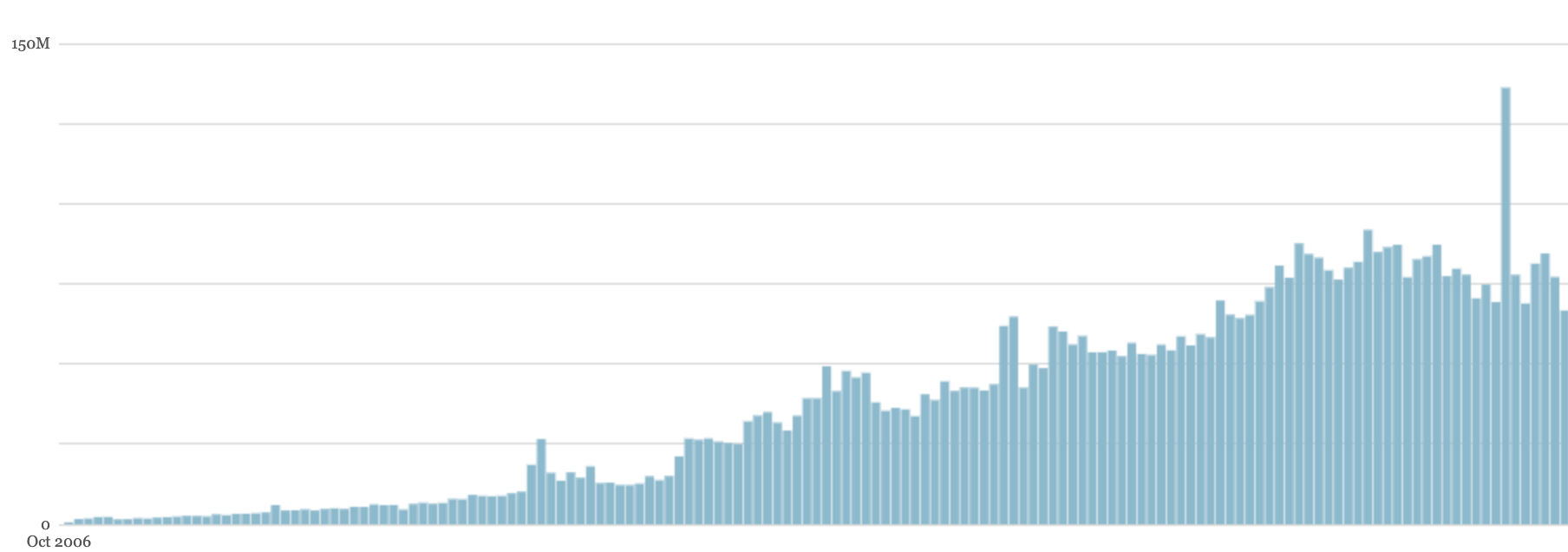
This graph from WordPress shows the number of blog posts published each month since the beginning of the content marketing era. You don’t have to be a statistician to realize it’s harder to compete for attention in a world of 80 million blog posts every month compared to one million a month 10 years ago. In fact, your competition has increased by 8,000 percent in a few years. A tough world for an inbound marketer!
Of course, the same thing is happening on podcasts, visual content, and video (there are 300 hours of new video uploaded to YouTube every minute of the day!).
To break through in this environment, you need to either spend more money on quality to win the content arms race or spend more to promote your content. Either way, traditional content marketing becomes more expensive and less accessible for many businesses in this environment.
So is this the end of content marketing?
No.
We just need to think about content and its benefits in an entirely different way.
SEO and junkyard dogs
I was recently hired by a company in Seattle to conduct a personal branding workshop based on my book KNOWN.
When you think about it, this was an extremely unlikely pairing. If you search for “personal branding consultant,” there are 40 million results. Even if you search for “personal branding consultant Seattle” there are 2.1 million results.
I am not in those top search results. Not even close.
This is not an unusual situation for a small business. I am NEVER going to be in the top search results. Really, the only thing that matters is the top three slots. The top three slots will be won by the biggest, meanest, richest SEO junkyard dogs.
It’s an expensive and never-ending battle that I will never win for terms like “digital marketing consultant,” “marketing strategy, “keynote speaker,” or any of the other jobs that I do.
Chances are, unless you’re the junkyard dog in your industry, you won’t win your SEO battle either. And yet, every company I know is pouring money into content trying to win the SEO battle!
This just makes no sense.
But here I was in Seattle, conducting an awesome workshop. How did my client find me in all this hopeless SEO mess? Through my content. But not through search.
The business case for resonance
The night before my workshop, I had a wonderful seafood dinner with my client. I asked my friend … “Why did you hire me?”
“Your content resonates with me,” he said without hesitation.
Isn’t that an interesting word … resonates.
My content was not at the top of an SEO stack for personal branding. I’m certainly not going to make the Alexa hit parade.
But a person who hired me for this important work chose me because there was an emotional connection that resonated with him on a personal and professional level.
This reveals a more practical and realistic value of content in this competitive environment and a value that is almost entirely overlooked by marketers today.
At this point, I would like to interrupt myself. Whenever I write a mega-trend blog post like this, I am pointing out an idea that is very broad … and it may not apply to everybody. There certainly is still room today for SEO-driven content, and there always will be as far out into the future as I can see. The numbers I’ve presented here are high level. The true search volume for your industry could result in mostly organic results, especially in smaller niche markets.
The answer to every marketing question is, “it depends,” and that is certainly true here.
But overall, SEO-driven content is probably working less well for most businesses and content that attracts customers due to its authority is becoming more important.
Content and authority
So there are really two basic content strategies you can use to win new business: Content meant to win SEO and content meant to earn authority (content that resonates with readers). And of course, you can have overlap between these strategies:
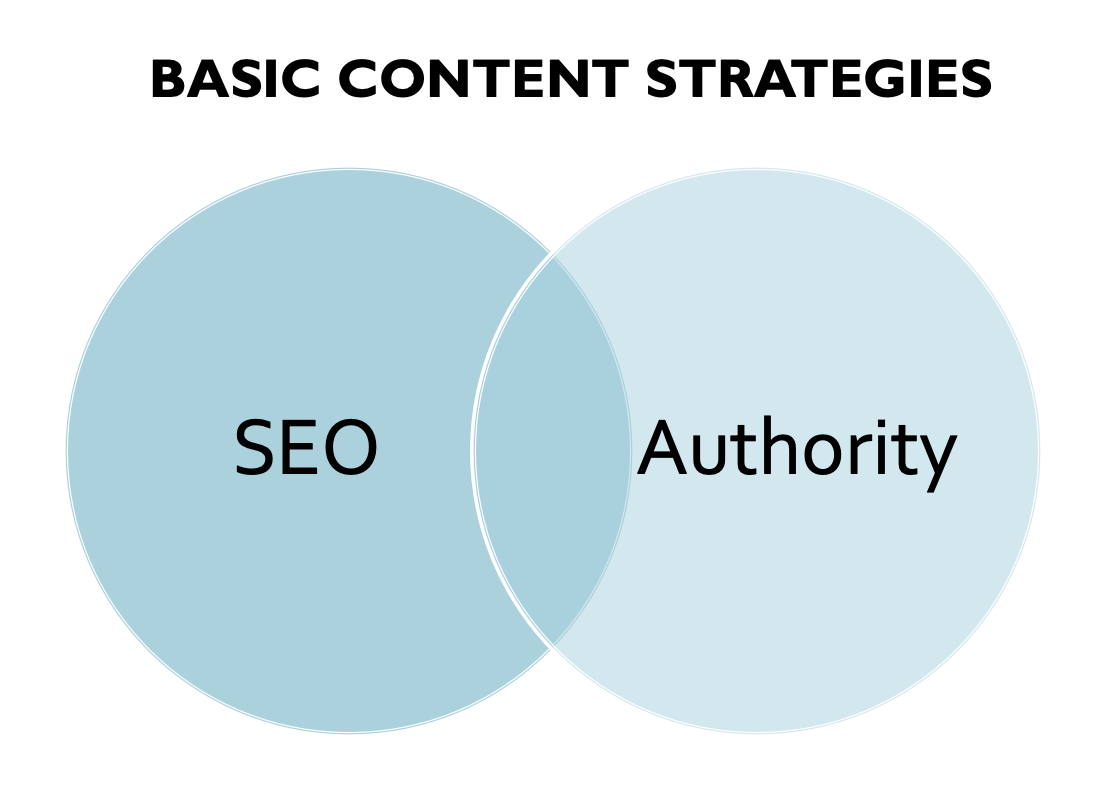
I won the business in Seattle — against all SEO odds — because I ignored SEO. I write for my readers. If I do that well and consistently, I’ll earn subscribers. Eventually, these subscribers will grow to know me, trust me and hire me. I think that is the future of SEO, which is really not SEO at all!
It’s a different way to look at content strategy but for 90 percent of the businesses out there who will never win the SEO battle, content built on authority might be the best and only strategic option.
I’m not creating content to trick you into clicking a link. I am creating content that consistently connects with your hopes and dreams and business needs. I’m building a long-term connection that resonates.
Make sense?
 Mark Schaefer is the chief blogger for this site, executive director of Schaefer Marketing Solutions, and the author of several best-selling digital marketing books. He is an acclaimed keynote speaker, college educator, and business consultant. The Marketing Companion podcast is among the top business podcasts in the world. Contact Mark to have him speak to your company event or conference soon.
Mark Schaefer is the chief blogger for this site, executive director of Schaefer Marketing Solutions, and the author of several best-selling digital marketing books. He is an acclaimed keynote speaker, college educator, and business consultant. The Marketing Companion podcast is among the top business podcasts in the world. Contact Mark to have him speak to your company event or conference soon.
Illustration courtesy Unsplash.com.


